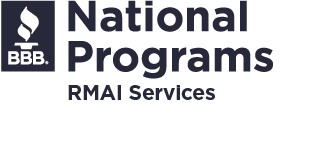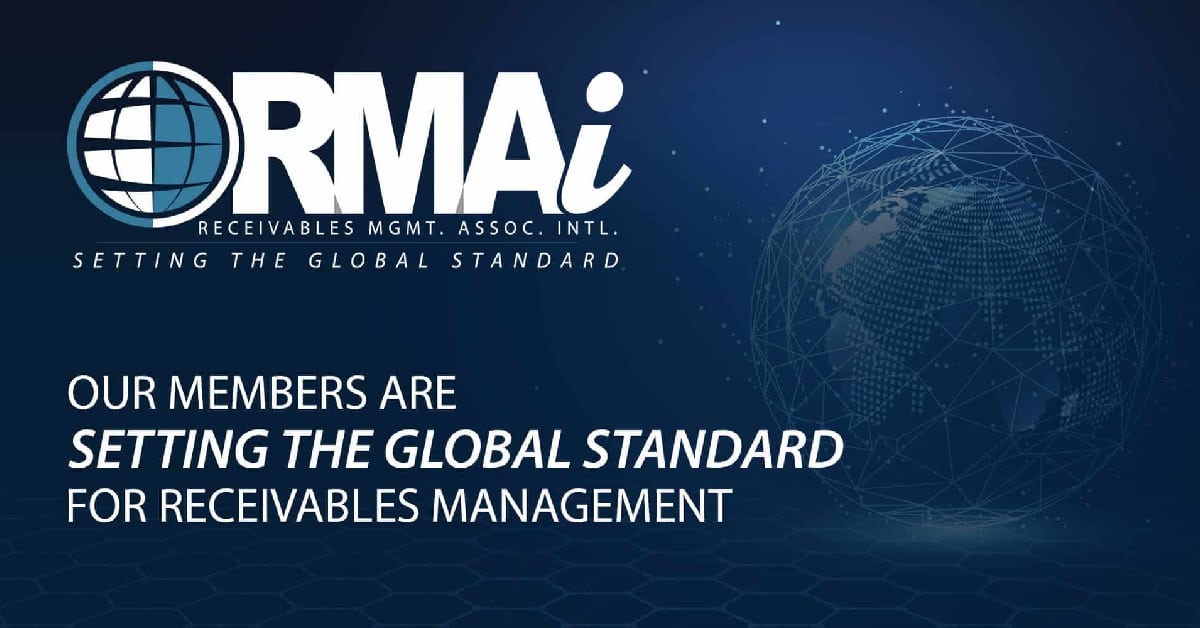RMAI’s Receivables Management Certification Program offers professional designations to businesses and individuals operating and employed within the receivables industry. RMAI launched the Certification Program in 2013 with a stated mission to “provide enhanced consumer protections through rigorous and uniform industry standards of best practice.” Often cited as the “gold standard” due to requirements that go above and beyond those required by law, the program certifies collection agencies, debt buying companies, collection law firms, vendors, and brokers.

BBB National Programs independently administers the Remediation Committee for RMAI’s Receivables Management Certification Program (RMCP).
Certification Resources
Certification Resources
Interested in certification? Check out the 7 Steps to Earn a Certification Designation flyer. In the process of applying for your certification or already certified? See below for all of the forms, templates and materials you need.
Certification Directory
Program Details
Certification and Renewal Applications
Audit Resources
Certification Resources
- 7 Steps to Certification
- 3 Steps to Family of Companies
- CRCP Timeline
- CRB/CRV Timeline
Education Resources and Credit Forms
- RMAI Educational Credit Forms
- Blank Education Credit Form
- Educational Subject Matter
- CCO Waiver Request Form
- Authorized Education Providers
Sample Policies and Procedures
Governance Document Archives
- Version 1.0 (11/5/12)
- Version 2.0 (3/11/14)
- Version 2.1 (9/30/14)
- Version 3.0 (1/5/15)
- Version 3.1 (10/30/15)
- Version 4.0 (8/1/16)
- Version 5.0 (1/1/17)
- Version 5.1 (8/1/17)
- Version 6.0 (3/1/18)
- Version 7.0 (3/1/19)
- Version 8.0 (3/1/20)
- Version 9.0 (3/1/21)
- Version 10.0 (3/1/22)
- Version 11.0 (3/1/23)
Redline Governance Document (Past 3 years)
Frequently Asked Questions about RMAI Certification
Answers to the most frequent questions we receive about our industry, our organization and the members we represent.
The RMAI Resource Library is your one-stop shop for knowledge and information featuring the following subject areas:
- RMAI Information & Opportunities – RMAI Ad Kit, Contributor Guidelines, Maximizing Your Membership, DEI Baseline Recommendations, Exhibitor & Sponsor Prospectus, and 2023 Annual Report
- Certification Resources – Program Overview, Governance Document, Certified Business Directory, Certified Individual Directory, Education Credit Form, Authorized Audit Providers, Business Certification Application, Individual Certification Application, Vendor Certification Application, Family of Companies Certification Application, Impact of Certification on Litigation, and Impact of Certification on Litigation Infographic.
- White Papers & Resources – Bankruptcy Paper, Fintech Primer Paper, Debt Buying Industry Paper, Guide to Receivables Management Industry, and Out of Statute Debt Report
- Compliance Resources — State Licensing, Amicus Briefs, Request Amicus Brief, and Legal Decisions
- Membership Resources – Membership Information, Membership Application, and Additional Membership Representative Form
New items are added as they become available. To let us know your suggestions, contact Aurora Sain.
RMAI’s Receivables Management Certification Program offers professional designations to businesses and individuals operating and employed within the accounts receivables industry. RMAI launched the Certification Program in 2013 with a stated mission to “provide enhanced consumer protections through rigorous and uniform industry standards of best practice.” Often cited as the “gold standard” due to requirements that go above and beyond what is required by law, the program certifies debt buyers, collection agencies, law firms, brokers, and vendors. For more information, click here.
Certifications will be granted to businesses that comply with uniform and rigorous industry standards of best practices and pass an RMAI conducted background check. The standards address core principles including account documentation, chain of title, consumer complaint and dispute resolution, statute of limitation compliance, vendor management, credit bureau reporting, resale, as well as other relevant operational procedures. Certification can also be granted to vendors and brokers that comply with the applicable standards.
Currently, debt buying companies actively purchasing portfolios must earn the Certified Receivables Business (CRB) designation within one year as a condition for RMAI membership. Debt buying companies not actively purchasing receivables must meet the following requirements to remain an associate debt buyer member:
- Must not have purchased an account since the last membership renewal
- When purchasing an account meet all the requirements and standards outlined in the certification program
- Must complete business certification within one year of purchasing an account
Collection law firms, third party collection agencies, and vendors may voluntarily seek the CRB or Certified Receivables Vendor (CRV) designation but are not required to do so to maintain RMAI membership.
On July 21, 2023, the RMAI Membership approved an amendment to the RMAI Bylaws requiring current associate debt buyer members to become certified by January 1, 2025, to maintain their membership.
Starting March 1, 2024, the Certification Program is going to require a pre-certification audit as a condition to certification. Businesses that earn certification prior to March 1, 2024, do not need a pre-certification audit. If you have questions, contact Director of Certification and Education, Shannon Parod at (916) 482-2462 or [email protected].
Affiliated businesses (debt buying companies, collection law firms, and third-party collection agencies) may share certification under a “Family of Companies” designation provided that all of the businesses meet the following criteria:
- Have the same Chief Compliance Officer (CCO)
- Have the same executive management team that exerts control over business operations (this requirement may be waived by the Administration & Budget Committee if there exists other unifying factors that would preclude its necessity)
- Maintain a uniform network of compliance on all accounts serviced between the business entities
- Are governed by the same corporate policies and procedures
- Agree to be audited in a single unified audit
- Agree any Deficiency and Remediation against one business entity will apply to all of the business entities
NOTE: Businesses that do not meet all of the Family of Companies criteria will need to maintain separate business certifications.
- Only one set of policies and procedures needs to be created rather than multiple versions of the same policy.
- Only the Chief Compliance Officer needs to complete their individual Certified Receivables Compliance Professional (CRCP) designation rather than having multiple CCOs.
- All businesses in a “family of companies” have a single unified audit, which significantly reduces costs for external audits for each separate business.
- The cost of adding an additional affiliated business to a certification is only $150 rather than an additional fee of $1,800 per business.
Check the Certified Business Directory to search Certified Businesses by name, business type, and more. The Certified Business Directory is used by creditors looking to sell or place their defaulted accounts as well as other businesses.



